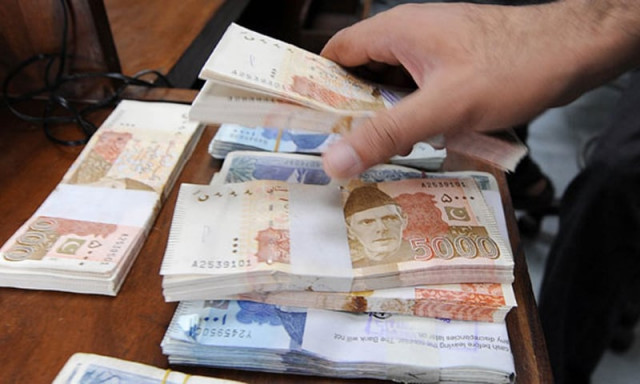Govt fails to defend Rs480b circular debt payments
Matter may again land in NAB for investigation into undue favour

Matter may again land in NAB for investigation into undue favour. PHOTO: AFP
Officials of the Central Power Purchasing Agency Guarantee Limited (CPPA-G) could not defend the case in a meeting of the Senate Standing Committee on Finance and Revenue, which equally caused embarrassment for the power secretary and treasury members.
The meeting was called at the request of the Ministry of Energy that had complained that it had not been given sufficient opportunity to give its viewpoint. In May this year, the Senate standing committee had unanimously decided to refer the circular debt payments to investigation agencies for a comprehensive probe.
Pakistan’s power sector — how to eliminate the circular debt
The PML-N government had made the payments in June 2013 within a day by suspending all relevant rules and procedures. The debt had accumulated during earlier administration of the Pakistan Peoples Party (PPP).
The Senate standing committee unanimously adopted the report of its sub-committee that conducted parliamentary investigation into alleged irregularities in the payments.
After the committee’s decision, the Senate also adopted the report. But its implementation is pending due to opposition from the Power Division. At that time, the committee had recommended that the case should be referred either to NAB or the Federal Investigation Agency while seeking recovery of Rs60.7 billion from the independent power producers (IPPs).
The parliamentary investigation primarily focused on a report compiled by the Auditor General of Pakistan (AGP) on the clearance of circular debt.
The AGP report also showed that the government had failed to adequately verify all claims before retiring the circular debt and made “avoidable payments” amounting to Rs165 billion to the power producers.
CPPA-G chief executive officer and chief finance officer could not satisfy members of the committee on Tuesday.
“I cannot defend inconsistencies in official responses and if the committee deems it appropriate it may send the case for inquiry,” said Power Secretary Yousaf Naseem Khokhar. But he sought two more weeks to get to the bottom of the problem.
Govt to borrow another Rs41b to pay circular debt
The committee was seeking responses in relation to Rs32.5 billion worth of idle capacity payments, Rs2.7 billion of payments to the IPPs and the decision to conduct a heat rate study of the IPPs.
The power secretary said if he could not satisfy the members, the panel may send the case to NAB or can order a forensic audit.
To a question about the declaration of emergency to make payments, the secretary said it was the responsibility of the finance ministry.
By declaring emergency, the ministry had cleared the dues within 24 hours, but the committee’s findings revealed that there was no emergency-like situation at the time.
During Tuesday’s proceedings, the committee’s main concern was Rs32.5 billion worth of “unjustified payments” to the IPPs on account of idle capacity. In its report, the committee has declared it a criminal act.
However, Senator Osman Saifullah of the PPP questioned the AGP’s capability to understand the complex nature of the power sector. The AGP had alleged that the government gave “undue favour” to the IPPs by paying for the idle capacity.
The power plants were ready to supply electricity and it was the government’s fault that could not buy it, said Saifullah.
Responding to a question, an AGP official admitted that the power plants had made more money through receiving payments against idle capacity.
Two members of the sub-committee that conducted the probe were of the view that the capacity should not have been idle when up to 18 hours of load-shedding a day were being carried out in 2012-13.
Published in The Express Tribune, December 13th, 2017.
Like Business on Facebook, follow @TribuneBiz on Twitter to stay informed and join in the conversation.



















COMMENTS
Comments are moderated and generally will be posted if they are on-topic and not abusive.
For more information, please see our Comments FAQ